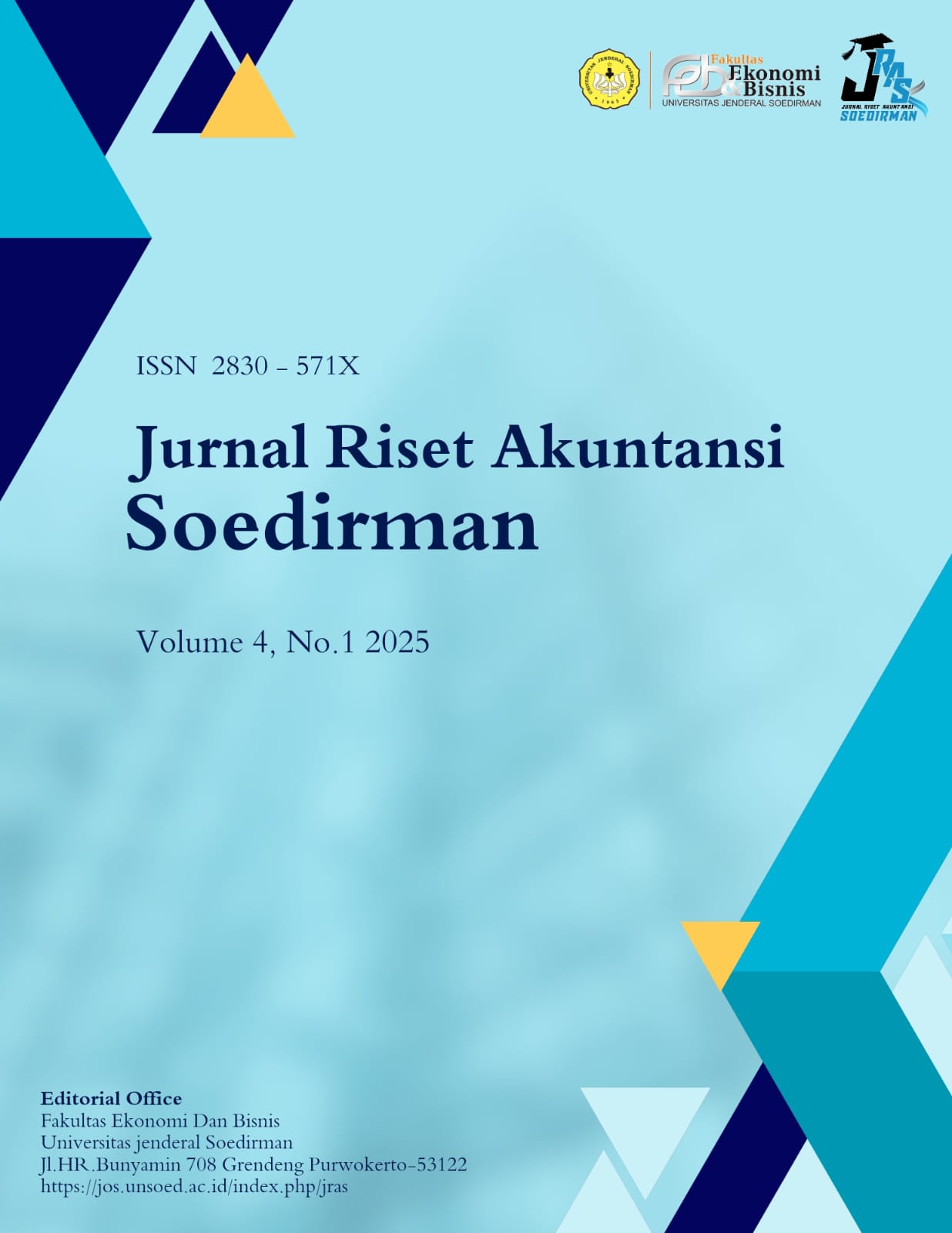Pengaruh Norma Subjektif, Motivasi Ekonomi, dan Pertimbangan Pasar Kerja terhadap Minat Mahasiswa Berkarir Sebagai Auditor Pemerintah
(Studi pada Mahasiswa S-1 Akuntansi Universitas Jenderal Soedirman)
Abstract
This research aims to examine and analyze the influence of subjective norms, economic motivation, and job market considerations p the interest of undergraduate accounting students at Jenderal Soedirman University in pursuing a career as a government auditor. The research framework and hypothesis in this research are based on Maslow’s Hierarchy of Needs Theory and Planned Behavior Theory. Primary data used in this research were obtained from research respondents through a survey method. The population in this study consisted of all active undergraduate accounting students at Jenderal Soedirman University. The sampling method used purposive sampling based on predetermined criteria, which resulted in a total of 137 respondents. The data analysis technique used are data quality testing, classical assumption testing, multiple linear regression analysis, coefficient of determination testing, partial testing (t-test), and F- test. The results of the research showed that subjective norms have a positive influence on students’ interest in pursuing a career as a government auditor, economic motivation does not influence students’ interest in pursuing a career as a government auditor, and consideration of the job market has a positive influence on students’ interest in pursuing a career as a government auditor.





